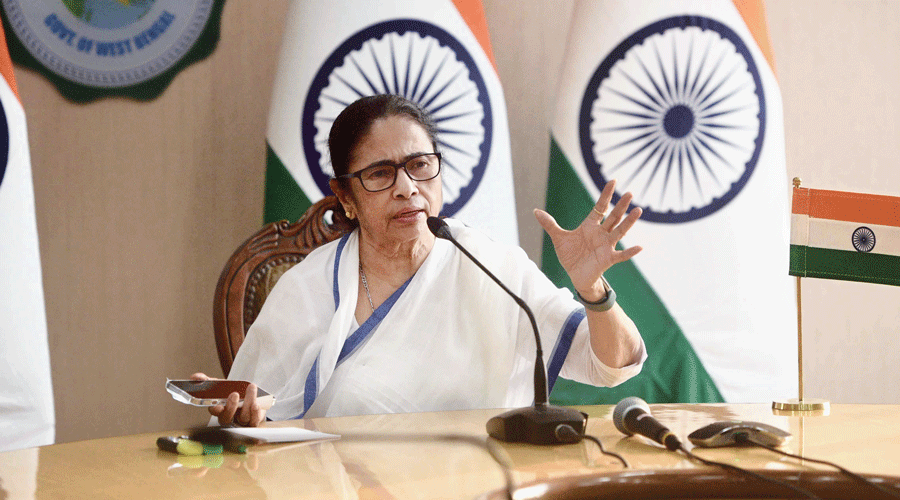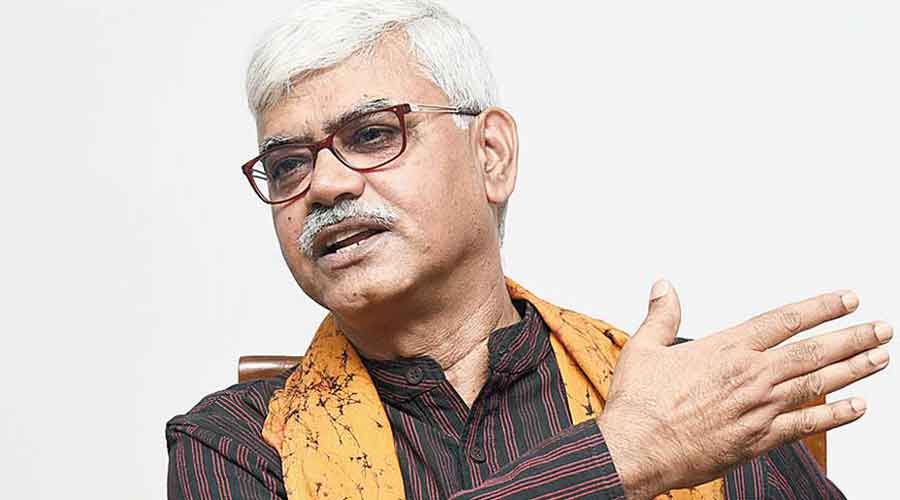The chief minister will be the chancellor of state government-run universities instead of the governor, the Mamata Banerjee cabinet decided on Thursday.
Such a move will give the state government absolute control over state universities, teachers said.
The state government has to amend the West Bengal College and Universities Act that states the governor, “by the virtue of his office, shall be the chancellor of the university”.
After passing the amendment in the Assembly, the government has to send it to the governor for his assent so it can become law.
A senior state education department official said that presidential assent would not be required.
Government sources said the bill was likely to be tabled during the monsoon session of the Assembly, which usually starts in July.
After the cabinet meeting, education minister Bratya Basu announced: “The state cabinet has unanimously accepted the name of the chief minister as chancellor in place of the governor. It (the bill) will now go to the Assembly and become an act.”
Kerala governor Arif Mohammed Khan had on December 10 urged chief minister Pinarayi Vijayan to take over his duties as chancellor, expressing resentment at the appointments of university heads in a new line of confrontation with the Left Democratic Front government. Khan remains the chancellor.
Minister Basu’s announcement of the decision comes five months after he had said the government would examine the Constitution to see whether the chief minister could be the chancellor.
Basu had made the comment on December 24, days after governor Jagdeep Dhankhar had tweeted: “Education scenario @MamataOfficial worrisome.”
On Thursday, asked what if the governor refused to sign the bill, Basu said: “We will bring an ordinance.”
Another state university vice-chancellor said the governor can refuse to sign the bill once but if the state government sends it back, he is bound to sign it.
In 2019, the state government had introduced rules allowing a university to hold its senate meeting without the governor’s nod.
The West Bengal College and University Teachers’ Association asked why the state government had not explored the option of nominating an eminent scholar or educationist as chancellor, a possibility Basu had himself spoken about in December.
Basu had posted a tweet on December 24 saying: “It is high time to introspect whether we should continue with the colonial legacy of the governor being the chancellor of universities just by the virtue of his post or we should nominate eminent scholars and educationists as chancellors.”
A former vice-chancellor said: “This government has since coming to power made tall claims about depoliticising the campuses. If they were sincere, an academic should have been nominated as chancellor. Instead, they decided to establish a government stranglehold over the universities.”
Many teachers feel the decision is a blow to academic autonomy, a charge also levelled in the past against the present Bengal governor.
Jadavpur University had held its annual convocation on December 24, 2019, without the chancellor, who was blockaded by students on a campus replete with “Not Our Chancellor” posters.
Basu had earlier expressed the government’s displeasure at the chancellor allegedly sitting on files on the reappointment of VCs in state-run universities.
“If he (Dhankar) continues to take to Twitter and Facebook instead of working on areas associated with education, we will not accept this,” Basu had said in December.
Some teachers wondered whether the state government’s move might affect the flow of funds from the University Grants Commission.
A pro-VC of a state-run university said the governor had been made the ex-officio chancellor so that he could hear the grievances if any differences arose between the state government and university teachers and officials. This would not be possible now.












